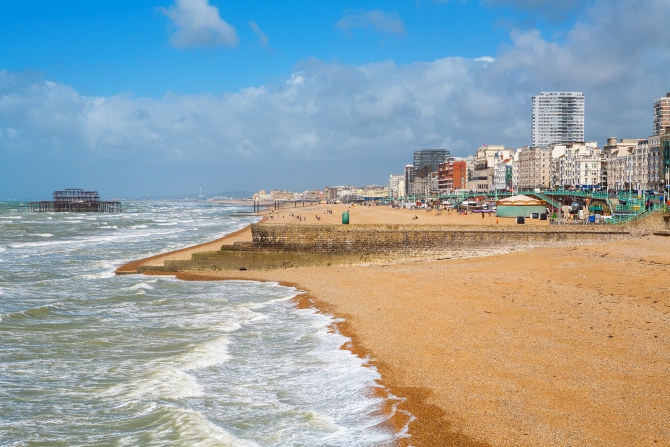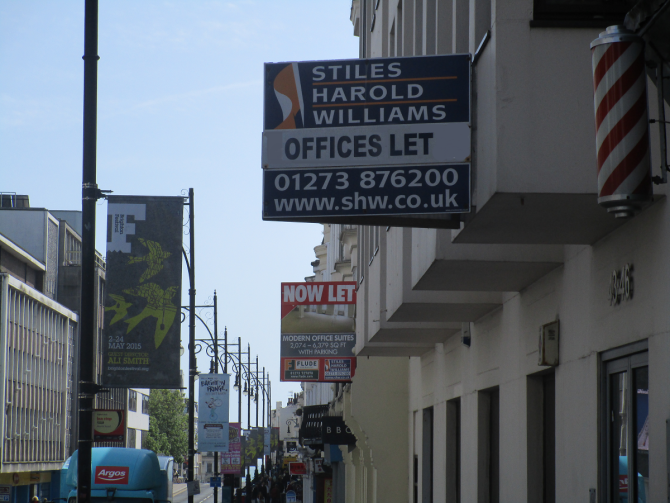Despite recently being described as the most active city for property development outside London, Brighton & Hove faces a severe commercial shortage that threatens to put the brakes on the local economy.

The warning comes from national property consultants Stiles Harold Williams, who say that geographical limitations and relatively low rents are preventing the levels of development required to meet demand.
Although there are presently a number of high-profile schemes in the pipeline, particularly those at One Preston Park and CityView, these will fail to meet the capacity requirements which continue to grow as the economic recovery progresses, the consultants say.
In fact, the issue has become so severe that the current demand for office space cannot be met, causing businesses to search further afield and thereby stalling growth in the local economy.
Stiles Harold Williams Associate Emma Hards says; “We are having to turn potential occupiers away because of the shortage. The overall property development picture may be rosy, but we are suffering from a lack in supply which needs to be addressed if the economy of the city and employment levels are to flourish over the next decade or so.”

Along with the obvious geographical limitations between Brighton’s downs and the sea, the fact that office rents in the city remain low, in comparison with construction costs, has led to developers taking a tentative approach to proposing the redevelopment of brownfield sites to create new office space.
This has been further compounded by a degree of reluctance on the part of banks to lend for speculative office projects – a direct result of the fallout from the financial crash of 2007-2008.
Yet another factor is the issue of the relaxation of Permitted Development Rights (PDRs) in 2013, which has eased the process of converting outdated office space into much-needed residential accommodation. While Brighton and Hove Council opposes the loss of offices, the local authority failed to secure a city wide exemption from PDR when Whitehall relaxed the rules in 2013.
Consequently, in the 18 months to the end of March this year, around 750,000 sq ft of office space gained planning consent for conversion into flats – space which is yet to be replaced by new office developments and is therefore contributing to the supply shortage facing the city in both the near and long term.
Managing partner for Stiles Harold Williams, Martin Clark, hopes the situation may soon change. He says; “Permitted development means we can alleviate some of the housing shortage, and this has been gained by a significant reduction in business premises of all sizes, which in turn will lead to rising office rents.
“If this occurs we can then stimulate speculative office developments to begin providing new stock as it makes it viable to build new offices for future employers in the city.”
Previous Post
NAMA set for €1bn Wind-Down Target